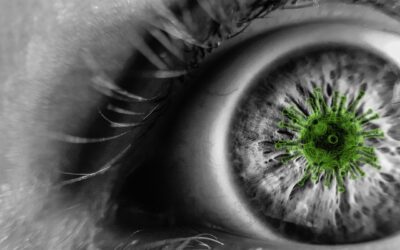Rheumatoid arthritis, or RA, is an autoimmune condition that is associated with joint pain and fatigue. In addition to the joint problems, rheumatoid arthritis can also impact the eyes either directly or due to side effects of medications used.
Who is Most Affected by Rheumatoid Arthritis?
Rheumatoid arthritis is most common in females, specifically it is most frequently diagnosed in females in their thirties to fifties.
There are no racial predilections for rheumatoid arthritis.
It is possible that there is a genetic component to rheumatoid arthritis and someone with a family history of rheumatoid arthritis may be at an increased risk of developing the condition themselves.
How to Diagnose Rheumatoid Arthritis
To diagnose rheumatoid arthritis, a doctor will order blood work and analyze several autoantibodies in the blood.
If these autoantibodies are present and symptoms align with rheumatoid arthritis, a diagnosis can be made, or additional testing may be done to verify the diagnosis.
Eye Symptoms from Rheumatoid Arthritis
The most common symptom in the eyes associated with rheumatoid arthritis is dry eyes. Less commonly, redness, pain, light sensitivity, and increased eye pressure may occur.
These symptoms result from the mechanism of rheumatoid arthritis as it attacks the body’s tissues and causes bouts of inflammation.
Uveitis or Eye Inflammation from Rheumatoid Arthritis
Uveitis is the term for the inflammation of the iris, ciliary body, and choroid in the eye. These structures provide blood to the eye and are responsible for keeping the eye healthy with oxygen and nutrients.
Rheumatoid arthritis can result in an intense inflammation of the uvea and thus impair the functions of these structures.
Anterior uveitis will cause many of the symptoms that are seen with rheumatoid arthritis including redness, pain, and light sensitivity.
To treat uveitis, a steroid eye drop, or steroid oral medication may be used to reduce the inflammation in the eyes.
Medications to Treat Rheumatoid Arthritis
To treat rheumatoid arthritis, a doctor may prescribe a variety of medications depending on the specific need in each case.
Commonly, steroids and NSAIDs (non-steroidal anti-inflammatory drugs) are used to control the inflammation throughout the body.
Additional medication treatment may include DMARDs (disease modifying anti-rheumatic drugs) such as hydroxychloroquine, gold salts, or methotrexate.
Side Effects of Steroids that Affect the Eyes
Long term steroid use is a risk factor for developing multiple eye conditions such as cataracts and glaucoma.
Since treatment for rheumatoid arthritis often consists of years of steroid use, these conditions need to be monitored for frequently.
In addition to the risk of long term changes, even a short duration of steroids can lead to a decrease in the immune system and put the eyes at risk of infection.
Side Effects of DMARDs that Affect the Eyes
Drugs that are used to treat rheumatoid arthritis are often considered to be slightly toxic which allows them to decrease the body’s over action in rheumatoid arthritis.
Hydroxychloroquine is especially toxic to the eyes. It can result in retinal damage known as Bull’s Eye Maculopathy and can also cause whorl keratopathy in the cornea.
Gold salts and methotrexate can cause deposits in the cornea and retina, respectively.
Since these medications are high risk for developing eye disease as a side effect, it is important to have regular eye examinations and testing done to monitor the eye health.





